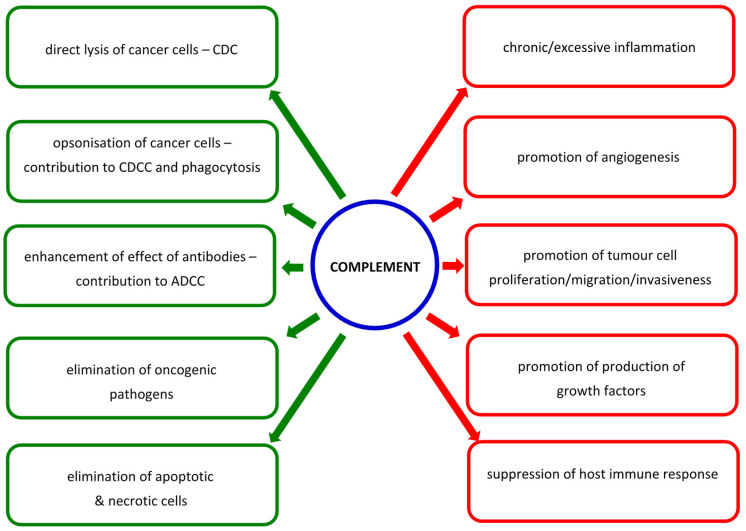Figure 2.
Multifaceted associations of complement with cancer. (Left panel)—effects beneficial for the host: complement activation leads to direct lysis of cancer cells (via formation of C5b9 complex; complement-dependent cytotoxicity, CDC), contributes to complement-dependent cellular cytotoxicity (CDCC) and phagocytosis (via opsonization of cancer cells with activated compounds), enhances the effect of antibodies (including therapeutic) (contribution to antibody-dependent cellular cytotoxicity, ADCC), and elimination of apoptotic/necrotic cells and some oncogenic pathogens. (Right panel)—effects detrimental for the host (mediated predominantly but not only by anaphylatoxins and/or formation of C5b9 complex): chronic inflammation may promote neoplastic transformation, uncontrolled complement activation may contribute to promotion of tumour cell proliferation/migration/invasiveness, angiogenesis, production of growth factors, and suppression of host response (especially via C5a action on myeloid-derived suppressor cells, which contributes to the decrease of CD8+ lymphocytes mediated by reactive nitrogen/oxygen species).

